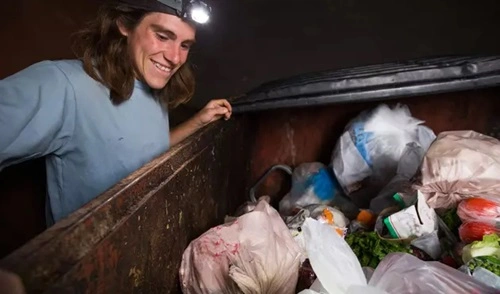No, dumpster diving is not inherently illegal in Colorado, but it can become illegal depending on specific circumstances, such as trespassing, violating local ordinances, or tampering with private property. The legality of dumpster diving depends on where the dumpster is located, who owns it, and whether the diver has permission to access it.
Understanding the Legal Framework
Dumpster diving refers to retrieving discarded items from dumpsters or trash bins. While federal law does not explicitly prohibit dumpster diving, state and local laws determine its legality. In Colorado, as in most states, the practice is a gray area due to factors like trespassing, sanitation, and property rights.
1. Legal Considerations for Dumpster Diving
Ownership of Discarded Items
In 1988, the U.S. Supreme Court case California v. Greenwood ruled that trash placed outside for collection is public domain and no longer protected by privacy rights. This ruling makes it legal to retrieve trash once it is on public property.
However, this does not apply to dumpsters on private property or those behind gates, fences, or within enclosed areas.
Trespassing Laws
In Colorado, trespassing is a significant legal concern for dumpster divers. Dumpsters on private property, such as behind a store or inside a gated area, are protected by trespassing laws.
- Example: Under Colorado Revised Statutes § 18-4-502, entering private property without permission is classified as criminal trespass, which can result in fines or misdemeanor charges.
Theft Laws
While discarded items are generally considered abandoned, taking items from a dumpster that is still the property of a business or individual may be classified as theft. Businesses sometimes reserve rights over the contents of their dumpsters, especially if they plan to recycle or donate the items.
Littering or Sanitation Violations
Dumpster diving can lead to littering charges if trash is scattered or improperly handled. Local sanitation ordinances in Colorado aim to prevent public health hazards, which can arise from diving into dumpsters containing hazardous or unsanitary materials.
2. Locations Where Dumpster Diving May Be Restricted
1. Retail and Commercial Areas
Many retail stores, including grocery chains and malls, place their dumpsters on private property. Diving into these dumpsters without explicit permission is likely to result in trespassing charges.
2. Residential Areas
Dumpster diving in residential areas is less regulated, but it’s important to avoid entering fenced yards or private driveways, as these are considered private property.
3. Public Dumpsters
Dumpsters located in public spaces, such as parks or city streets, are generally accessible for diving, provided there are no local ordinances explicitly prohibiting the practice. However, this varies by city.
3. Consequences of Illegal Dumpster Diving in Colorado
If dumpster diving violates local laws or ordinances, the consequences may include:
1. Fines: Trespassing or littering fines in Colorado can range from $50 to $1,000, depending on the severity of the offense.
2. Misdemeanor Charges: Repeat trespassing offenses or theft-related charges can result in misdemeanor penalties, including community service or probation.
3. Arrest: In severe cases, such as trespassing on a gated commercial property, law enforcement may issue an arrest.
4. Legal Dumpster Diving Tips in Colorado
To avoid legal trouble while dumpster diving in Colorado, follow these best practices:
1. Avoid Private Property: Stick to dumpsters in public spaces and ensure they are not fenced, locked, or marked with “No Trespassing” signs.
2. Check Local Ordinances: Some Colorado cities, such as Denver or Boulder, may have specific rules about waste disposal and public scavenging.
3. Ask for Permission: If you are interested in salvaging items, consider asking store managers or property owners for explicit permission.
4. Be Respectful: Avoid creating a mess or scattering trash, as this could lead to littering violations.
Recent Legal Updates (2023-2024)
1. Enhanced Trespassing Enforcement
Cities like Denver and Colorado Springs have increased enforcement against trespassing, particularly in commercial areas, following complaints from businesses about unauthorized dumpster use.
2. Public Awareness Campaigns
Local governments are encouraging residents to recycle and donate items to reduce waste while discouraging unauthorized dumpster diving.
3. Focus on Food Waste Management
Colorado has introduced new programs to address food waste, encouraging businesses to donate surplus food rather than discard it, which could reduce the incentive for dumpster diving in grocery store dumpsters.
FAQs About Dumpster Diving in Colorado
Q1. Is dumpster diving legal everywhere in Colorado?
Ans: No, the legality of dumpster diving varies by location. It is generally legal in public spaces but prohibited on private property without permission.
Q2. Can I be fined for dumpster diving in Colorado?
Ans: Yes, you can be fined for trespassing, theft, or littering if you violate property laws or local ordinances.
Q3. What happens if I dumpster dive behind a store?
Ans: If the dumpster is on private property, you may be charged with trespassing. Businesses can also request law enforcement to issue a warning or citation.
Q4. Are there public dumpsters where diving is allowed?
Ans: Yes, some public dumpsters in parks or city-managed spaces may be accessible for diving, but it’s essential to check local rules.
Q5. Can businesses donate discarded items instead of throwing them away?
Ans: Yes, Colorado has food recovery and recycling programs that encourage businesses to donate usable items, reducing waste and the need for dumpster diving


